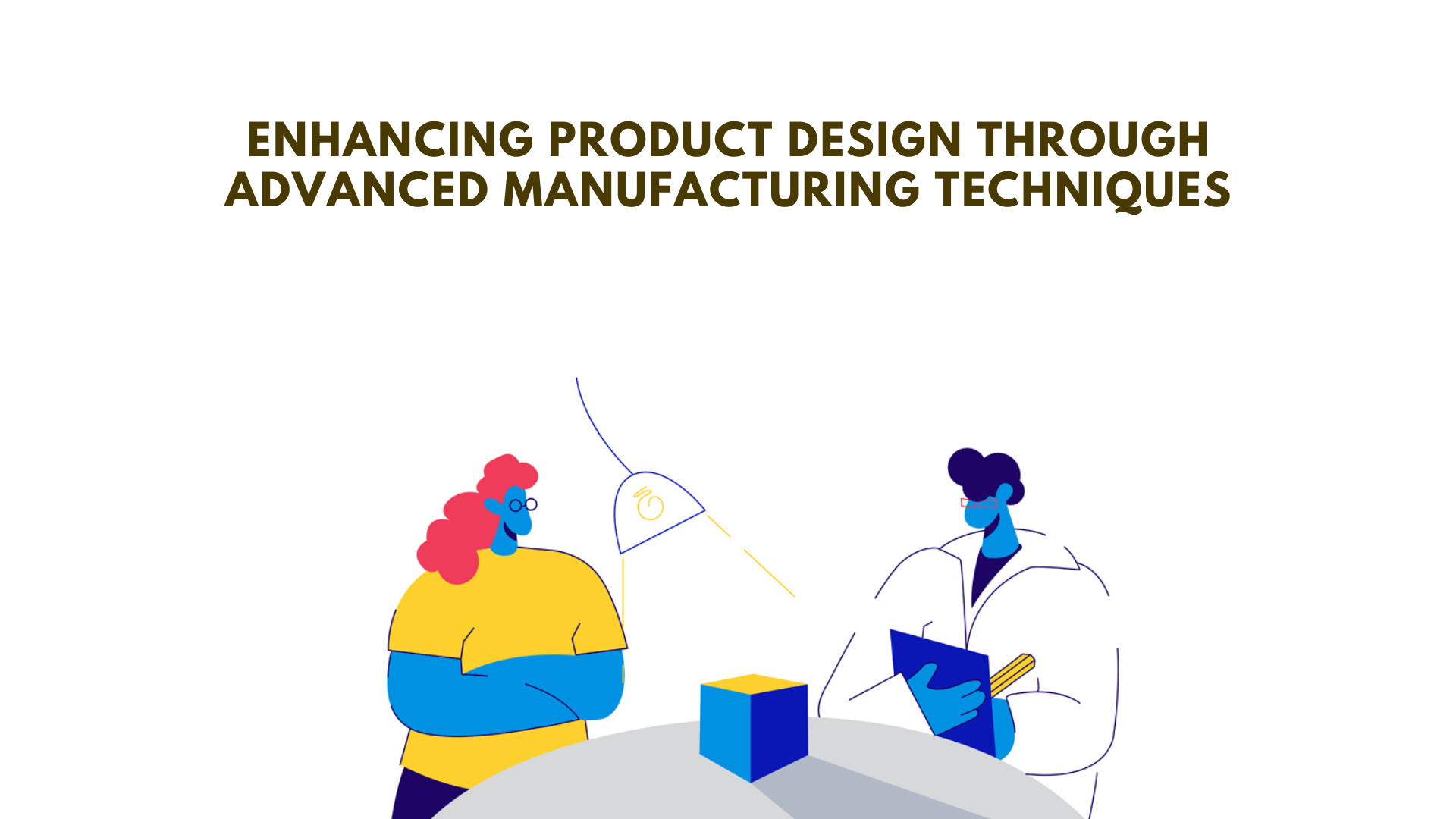In the ever-evolving landscape of manufacturing, staying ahead of the competition requires continuous innovation and improvement. One of the most impactful ways to achieve this is by leveraging advanced manufacturing techniques to enhance product design. These techniques not only streamline production processes but also open up new possibilities for creativity, efficiency, and customization. In this blog, we’ll explore how advanced manufacturing techniques are revolutionizing product design and providing companies with a competitive edge.
Understanding Advanced Manufacturing Techniques
Advanced manufacturing encompasses a range of cutting-edge technologies and processes that improve the efficiency, precision, and flexibility of production. Some of the key techniques include:
- Additive Manufacturing (3D Printing): Additive manufacturing builds products layer by layer from digital models, allowing for complex geometries that are difficult or impossible to achieve with traditional methods.
- CNC Machining: Computer Numerical Control (CNC) machining uses computer-guided tools to cut, shape, and finish materials with high precision, ideal for creating detailed and intricate designs.
- Laser Cutting and Engraving: Lasers are used to cut materials with extreme precision and can engrave intricate patterns or logos, providing both functional and aesthetic enhancements to products.
- Robotics and Automation: Robotics and automated systems increase production speed and accuracy, allowing for consistent quality and the ability to scale production rapidly.
- Advanced Materials: The development of new materials, such as composites and nanomaterials, offers superior properties like increased strength, reduced weight, and enhanced durability.
Benefits of Advanced Manufacturing Techniques in Product Design
- Greater Design Flexibility: Advanced manufacturing allows designers to experiment with complex shapes and structures that were previously impractical or impossible. This flexibility enables more innovative and functional product designs.
- Rapid Prototyping: Techniques like 3D printing facilitate rapid prototyping, allowing designers to quickly create and test multiple iterations of a product. This accelerates the design process and reduces time to market.
- Customization and Personalization: Advanced manufacturing makes it easier to produce customized products tailored to individual customer preferences. This capability is particularly valuable in industries like healthcare, where personalized solutions can significantly improve outcomes.
- Improved Material Efficiency: Additive manufacturing and precise machining techniques reduce material waste by using only the necessary amount of material for each product. This not only cuts costs but also supports sustainability efforts.
- Enhanced Performance and Durability: The use of advanced materials and precise manufacturing processes can enhance the performance and durability of products. This leads to higher quality, longer-lasting products that meet and exceed customer expectations.
- Cost-Effective Low Volume Production: Traditional manufacturing methods often require high volumes to be cost-effective. Advanced techniques, particularly additive manufacturing, enable cost-effective production of low volumes, making it feasible to launch niche products or limited editions.
Real-World Applications
- Automotive Industry: Advanced manufacturing techniques are used to create lightweight, high-strength components that improve fuel efficiency and safety. Customization options also allow for tailored interior designs.
- Healthcare: 3D printing is revolutionizing healthcare by enabling the production of custom implants, prosthetics, and even bioprinted tissues and organs, enhancing patient outcomes and reducing recovery times.
- Consumer Electronics: Precision machining and advanced materials are crucial in the production of sleek, high-performance electronic devices. Customization options also cater to consumer preferences for personalized gadgets.
- Aerospace: The aerospace industry benefits from advanced manufacturing through the creation of complex, lightweight parts that meet stringent safety and performance standards.
Strategies for Implementing Advanced Manufacturing Techniques
- Invest in Training and Education: Equip your workforce with the necessary skills to operate advanced manufacturing technologies. Continuous education and training programs are essential to keep up with evolving techniques.
- Collaborate with Experts: Partnering with universities, research institutions, and technology providers can help your company stay at the forefront of manufacturing innovation and access the latest advancements.
- Adopt a Digital Mindset: Embrace digital transformation by integrating advanced manufacturing technologies with digital design and simulation tools. This holistic approach ensures seamless collaboration and optimization across the design and manufacturing process.
- Pilot and Scale: Start by implementing advanced manufacturing techniques in pilot projects to assess their feasibility and impact. Once proven successful, scale up the implementation to other areas of production.
- Focus on Sustainability: Incorporate sustainable practices in your manufacturing processes. Advanced techniques often offer greater material efficiency and reduced waste, aligning with environmental goals and improving brand reputation.
Conclusion
The integration of advanced manufacturing techniques into product design is transforming industries by enabling greater creativity, efficiency, and customization. By embracing these technologies, companies can not only enhance their product offerings but also achieve significant competitive advantages. As the manufacturing landscape continues to evolve, staying ahead of the curve will require a commitment to continuous innovation, investment in new technologies, and a willingness to explore new possibilities in product design.









